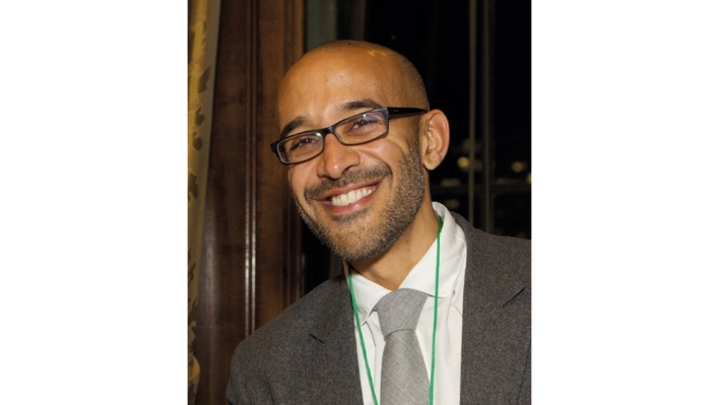Alex Connock offers scientific proof that MediaCity UK has taken off – or you could try squeezing into a local RTS event to see for yourself
Just in case your subscription to Database Marketing and Customer Strategy Management has lapsed, let me remind you of the 2011 study suggesting that, to achieve critical mass, a social network needs to sign up 15% of its relevant population.
The number of staff at MediaCity UK has just topped 3,000 – which happens to be close to 15% of the relevant population of 23,000 in Manchester's overall creative industries.
And that means, in academic terms, that MediaCity has reached critical mass as a social network.
Which anybody on the ground could have told you. The restaurants (basically Wagamamas and a couple of pizza places) and the pub (a meta-All Bar One called DockBar) are now properly full at lunchtimes.
The one supermarket (Booths – think Northern-posh) has queues practically out of the door, not least for Chinese chicken at the hot counter.
Even upmarket Marco Pierre White has opened a restaurant. I, for one, feel certain he will now be moving to Salford on a permanent basis.
Proper TV shows such as Coronation Street, Mastermind, Countdown, University Challenge, Match of the Day, Blue Peter and many more are in and out all the time, plus concomitant hubbub.
One day last week, all seven studios were shooting simultaneously.
Jeremy Kyle participants from tough neighbourhoods like Wythenshawe are led on circuitous loops of the building to avoid them reconciling with each other before the studio showdown.
When The Voice was in town, the place was flooded with assistants in black T-shirts, conversing with each other extensively on talkback about issues of importance such as where to buy the presenters' lunches.
One of the key questions, I gathered, was an enquiry from one of the judges as to whether the Wagamama apple and orange juice was organic.
Content is shipped to the world from the same docks that shifted cotton 150 years ago.
In the indie production sector, True North came over in force from Leeds to produce the Wales-based show, The Valleys (the geography must make sense to someone).
The superb Red, now poetically based above the MediaCity Holiday Inn, is pumping out an extraordinary run of drama hits, from The Driver to Last Tango in Halifax.
Each demonstrates a depth of location filming that does for Manchester and West Yorkshire what Hitchcock did for Northern California.
Their new neighbour is the company I am running, Shine North. In parallel with MediaCity, we, too, have moved from tiny quasi start-up to bustling offices with four or five series on the go.
Content is shipped to the world from the same docks that shifted cotton 150 years ago.
Happily, the RTS is integral: a driver, a passenger, and a road map to the creative change that has swept through North West TV in the past two years.
The other day we put on probably our loveliest event ever. Puppets and puppeteers jointly took to a crowded stage in The Lowry to discuss the finer amusements of their craft before a rapt audience of our now entirely usual 200-plus.
The conversation was sparkling, warm, creative and a world away from the self-aware, slouching TV executive angst that defines most conference speeches we've all endured – or perpetrated.
And at the RTS North West Awards this month, the depth and range are there for all to celebrate.
We rapidly sold out the Hilton for the second year running, with some 460 guests, double the number of sponsors, and almost no free tickets given out even to helpers.
We could have gone bigger. We had an incredible 96 people taking part as judges.
Of course, we have individual shortlists dominated by sector-leading players such as CBBC in the new Animation category or ITV in Continuing Drama (that is, soaps). But take the nominees together, and the
overall picture is of an industry in balance between BBC, ITV and independent, – and thriving. TV in the North West definitely has reached critical mass.
Alex Connock is Managing Director of Shine North.








